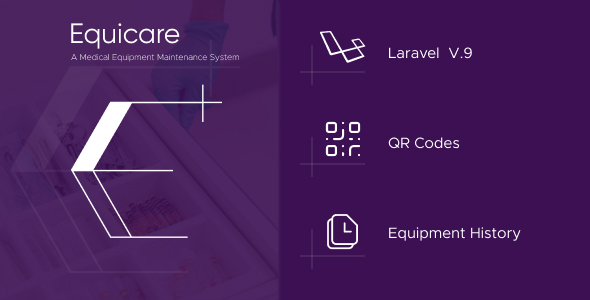Version: 1.2
Type: Function
Category: HTTP
License: GNU General Public License
Description: function that read an url with http header from a web site.
usefull for :
– detecting or sending cookie
– manually launch php3 script without browser interaction
<?php /* ** ** http_get_url.inc ** ** Daniel Boesswetter, [email protected] ** http://www.peppermind.de ** ** Patrice Labracherie, [email protected] ** ** ** V1.2 Mar-08-2001 ** ** - changed &$header from beeing a scalar to an array containing ** key/value pairs corresponding to the header fields and their ** contents (keys are lowercased) ** ** - added http_get_url_follow() to follow redirects (at least some :) ** ** - added &$resp_line ** ** ** ** V1.1 Mar-03-2k+1 ** ** heavily based on GetURL 1.0 by [email protected] as found on ** https://phpbuilder.com, thanx a lot! ** ** added the $port, $req_hdr and $pver arguments and the basic_auth_hdr ** function and renamed the function to http_get_url() ** ** usage is as follows: ** ** $ret = http_get_url($host, $port, $url, $cookie, $req_hdr, $page, ** $header[, $pver]); ** ** with the $host and $port (usually 80) you want to contact, the ** absolute $path on this server, additional request-headers (an array ** containing "fieldname" => "value" pairs, e.g. login-credentials), ** variables that will contain the contents of the $page and response ** $header resp. and an optional protocol-version (defaults to HTTP/1.0) ** ** this function returns -1 on network error, 0 on protocol error and ** the HTTP-return-code on "success" (whatever that means) ** ** additionally there is a new helper function ** basic_auth_hdr($login, $password), that takes $login and $password ** and returns an array suitable for beeing passed to http_get_url() ** in the $req_hdr field. ** ** example: ** ** $ret = http_get_url("www.someserver.com", 80, "/", "", ** basic_auth_hdr("someuser", "secret"), $page, $header); ** ** $ret will be 200 if everthing went as expected, 401 if your login ** or password were wrong, 500 on an internal server error ... ** ** */ if (!defined("http_get_url.inc")): define("http_get_url.inc", true); function http_get_url($host, $port, $url, $cookie, $req_hdr, &$page, &$header, &$resp_line, $pver="HTTP/1.0") { $page=""; $header = array(); $sock = fsockopen($host, $port); if (!$sock) return -1; // build and send request $msg="GET $url ".$pver; if ($cookie != "" and !$req_hdr["Cookie"]) $msg .= "rnCookie: $cookie"; if (!$req_hdr["Host"]) $msg .= "rn"."Host: $host"; if (!$reg_hdr["Accept"]) $msg .= "rn"."Accept: text/html"; $h = array_keys($req_hdr); for ($i = 0; $i < count($h); $i++) $msg .= "rn".$h[$i].": ".$req_hdr[$h[$i]]; $msg.="rnrnrnrn"; fputs($sock,$msg); $chunked=0; // read response header $lc = 1; $ret_code = ""; while ($buffer = fgets($sock, 4096)) { if ($buffer == "rn") break; if ($lc == 1) { $resp_line = $buffer; // first line of response preg_match("/^HTTP/S+s+(d{3})s+w*/", $buffer, $a); $ret_code = $a[1]; } else { $a = split(":", $buffer); $key = array_shift($a); $key = strtolower($key); $val = join(":", $a); $val = preg_replace("/^s+|s+$/", "", $val); $header[$key] = $val; } if (preg_match("/Transfer-Encoding:s+(.+)rn/U", $buffer, $parts)) if (strtoupper($parts[1]) == "CHUNKED") $chunked=1; else echo "**???".$parts[1]."??rn"; $lc++; } if ($chunked == 0) { while ($buffer = fgets($sock, 4096)) { $page .= $buffer; // echo $buffer; } } else { while ($buffer = fgets($sock, 4096)) { if (!preg_match("/s*([dABCDEFabcdef]+)s*rn/i", $buffer, $parts)) { echo "**chunk size not found : $bufferrn"; return 0; } $size = (int)base_convert(strtoupper($parts[1]), 16, 10); if ($size == 0) break; $buffer = fread($sock, $size); if (strlen($buffer) != $size) { echo "**reading : $sizern"; echo "**readed : ".strlen($buffer)."rn"; return 0; } $page.=$buffer; // echo $buffer; $buffer=fgets($sock, 4096); if ($buffer!="rn") { echo "**CRLF not found : $bufferrn"; return 0; } } } fclose($sock); return $ret_code; } function basic_auth_hdr($login, $pw) { return(array("Authorization" => "Basic " .base64_encode($login.":".$pw))); } // follows redirects of the form http://host:port/path function http_get_url_follow($host, $port, $url, $cookie, $req_hdr, &$page, &$header, &$resp_line, $pver="HTTP/1.0") { $header = array(); $header["location"] = "http://".$host.":".$port.$url; $ret = "300"; while (ereg("^3", $ret)) { preg_match("/^http://([^:/]+)(:(d+))?(/.*)$/", $header["location"], $f); $my_host = $f[1]; $my_port = $f[3]; $my_url = $f[4]; $ret = http_get_url($my_host, $my_port, $my_url, $cookie, $req_hdr, &$page, &$header, &$resp_line, $pver); } } endif; ?>








